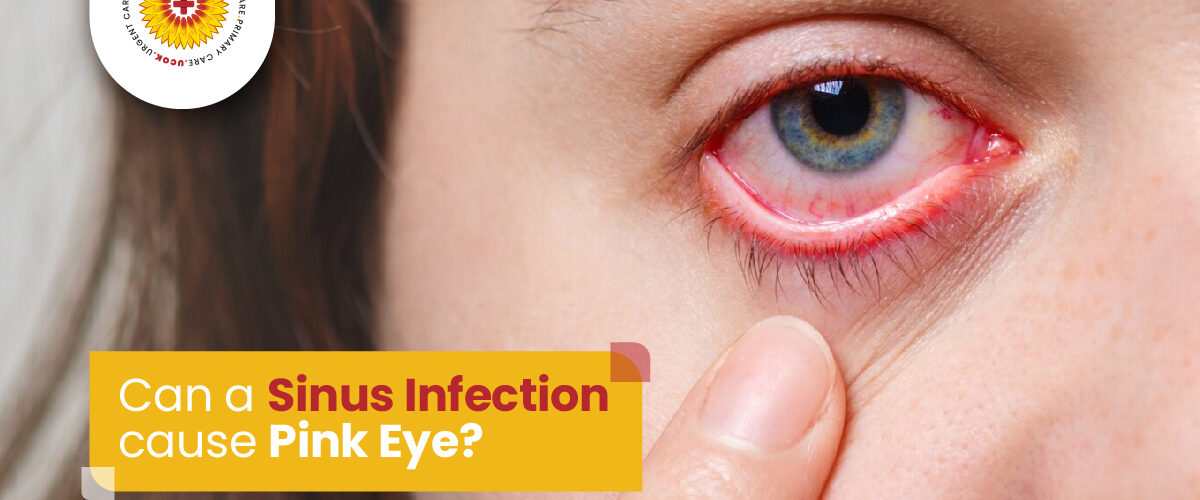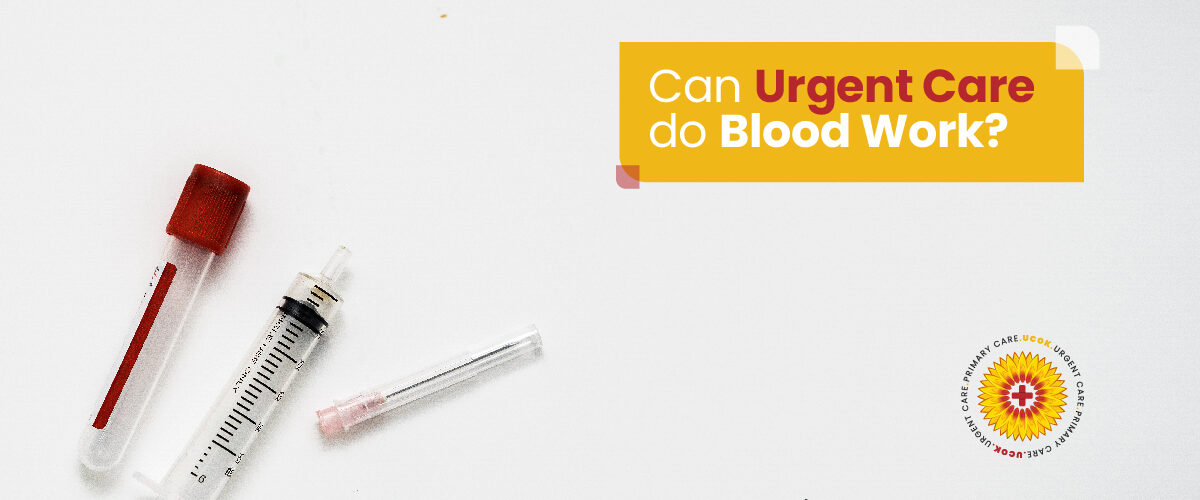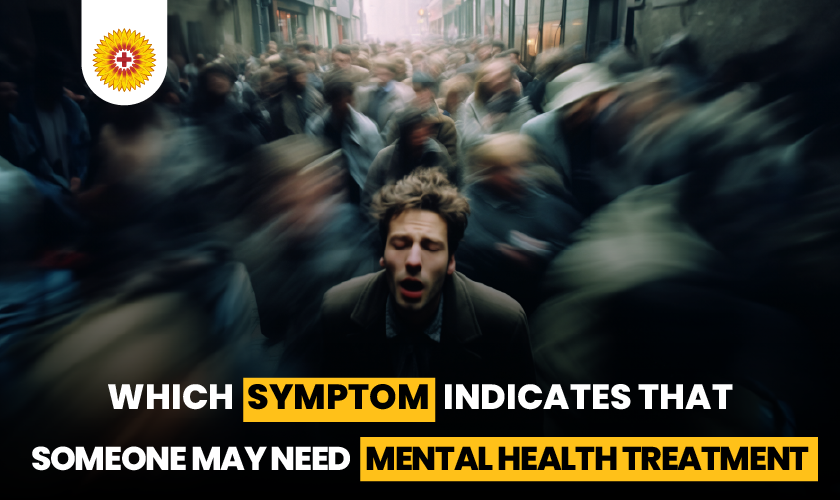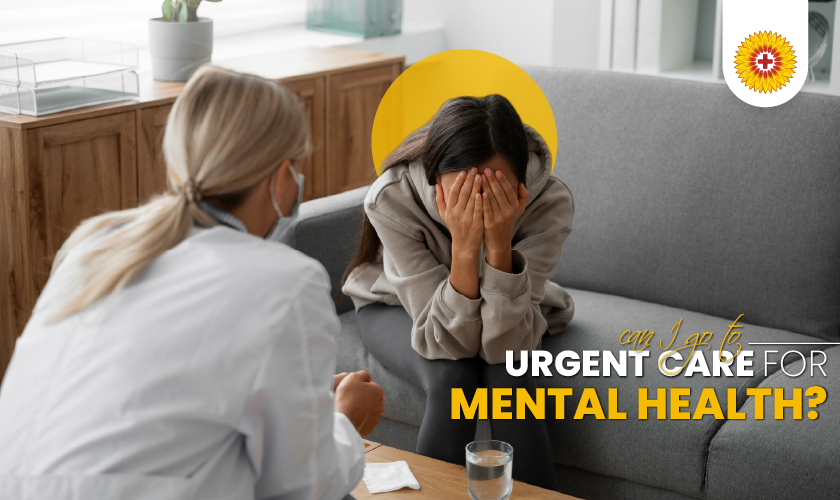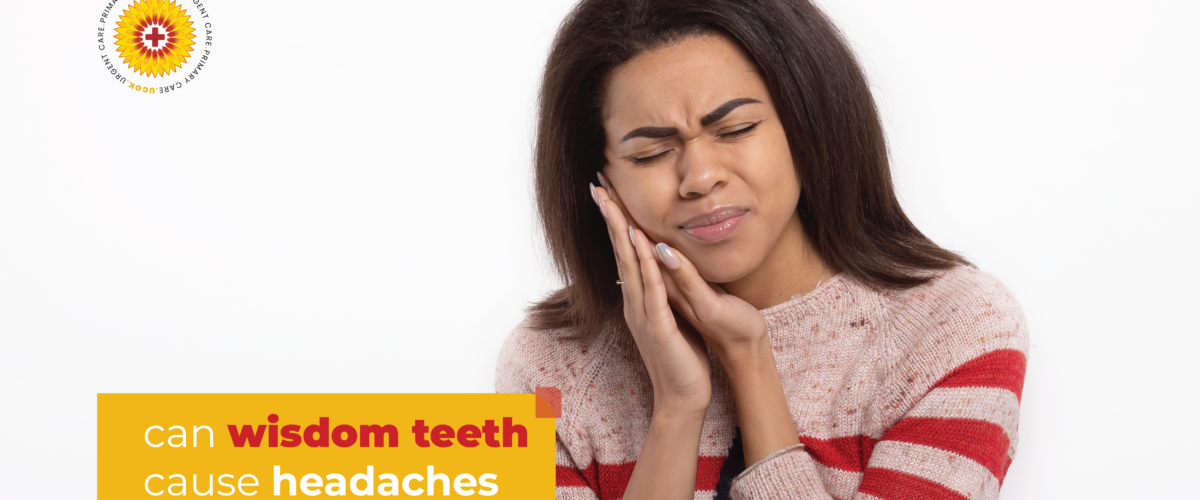
Can Wisdom Teeth Cause Headaches?
Unexplained headaches bother you? Are you a late teen or young adult? Your wisdom teeth could be why.
Often, wisdom teeth are overlooked until they hurt. Ask yourself, can wisdom teeth cause headaches? It’s something to consider.
If you get headaches and can’t find out why, it might be time to check on your wisdom teeth.
Are migraines or headaches troubling you? Urgent Care of Kansas is here to assist. Comfort and quick service are our key priorities for our patients of all age groups. We take care of urgent issues without life risk. Ask us for more information.
In this blog post, we’ll look at whether headaches can be caused by wisdom teeth and share some tips on how to handle these headaches.
What Are Wisdom Teeth?
Molars known as wisdom teeth generally appear between 17 to 25 years old. These latecomers can turn troublesome, sometimes due to insufficient room in the mouth.
This lack of space can lead to misplacements or even teeth getting trapped beneath the gums.
Consequently, keeping an eye on your wisdom teeth and seeking dental help when necessary is important.
Types of Headaches Caused by Wisdom Teeth
-
Tension Headaches
Surprisingly, these are often linked to wisdom teeth. When these back molars start pushing on the teeth and jawbone around them, this causes tension. This tension reaches the head, causing a steady, not-too-intense pain
-
Migraines
When wisdom teeth cause unease and strain, it can lead to powerful migraines. These headaches bring a strong, pulsating pain, often on one side of your head. They can also make light and noise feel harsh, and even induce episodes of nausea.
-
Cluster Headaches
Cluster headaches, though not as frequent, are also known for their intense, fiery discomfort that might awaken you from sleep. Usually, they target one-half of the head or surround a single eye.
-
Sinus Headaches
Should your wisdom teeth affect your top jaw, they could cause discomfort and tension in your sinuses.
This headache could show as a separation of heaviness around your cheeks, eyes, and forehead. It may get worse when you lean over or lie down.
-
Referred Pain Headaches
At times, the discomfort from wisdom teeth doesn’t just stay in the jaw. It can move to other head regions and create a headache.
What Are the Symptoms of Wisdom Teeth Headaches?
Are your wisdom teeth giving you headaches? You might notice several signs, like:
- Chewing-induced Headache: Having trouble with wisdom teeth can sometimes make chewing a headache inducer.
- Swollen Gums: Swollen gums might suggest a problem with your wisdom teeth.
- Headache with Earache: Aches around your jaw could spread to your ears and be a bother.
- Sore Neck: Your neck muscles may also feel the pinch, leading to more soreness with the jaw discomfort.
- Pain When Opening Mouth Wide: Your wisdom teeth can make wide-mouth activities like yawning or taking a big bite, quite uncomfortable
- Tight Jaw Muscles: Wisdom teeth sure could leave your jaw feeling stiff and aching.
- Facial Tingling or Numbness: Wisdom teeth irritating nerves might bring about an uncanny or numbing feeling in your face.
Why Do Can Wisdom Teeth Cause Headaches?
Does the shape of your mouth impact your comfort? Yep. When wisdom teeth start coming in, other teeth and the jawbone feel the push, which can trigger headaches. If there’s too little space, your jaw feels tight, and that stress can seep up to your head and neck. Ignored wisdom teeth can attract bacteria, leading to an infection known as pericoronitis.
With this condition, pressure builds near the wisdom teeth, making you uncomfortable and possibly causing headaches.
So, can wisdom teeth give you headaches? Indeed, wisdom teeth can cause headaches from the pressure and misalignment they create in the jaw when they are stuck or don’t have sufficient space to emerge correctly.
Can Cause Headaches after Tooth Extraction?
Yes, headaches can sometimes follow wisdom teeth removal but it’s a rare event. If wisdom teeth become problematic, extraction is usually the dentist’s advice.
Sometimes, this action leads to headaches from swelling and strain on facial nerves.
These headaches can start immediately right after the operation or a few days after. They will typically go away in a couple of weeks.
What to Do When You Get a Wisdom Tooth Headache?
When dealing with a wisdom tooth headache, try these steps:
- Schedule a dental appointment to identify and address the problem. Your dentist will determine if extraction or other treatments are necessary.
- A bag of ice or a chilled wrap can reduce pain and swelling.
- Relieve your pain with common medication like ibuprofen or acetaminophen.
- Gargle warm, salty water to comfort the sore spot.
- Brushing and flossing often help keep your mouth clean and fight germs.
- Eat soft foods to keep from putting extra stress on your teeth.
- Apply a numbing gel designed for dental pain to the affected area.
- Water helps clean your body and keeps your mouth healthy.
Keep in mind, that yearly checkups at the dentist are super important, especially in your late teens and early twenties.
They can watch your wisdom teeth and might advise having them removed if trouble is ahead.
Conclusion
Headaches might be a result of wisdom teeth-related issues. This could stem from transferred pain, tension in the jaw, or pressure on the sinuses.
If you think your headaches are due to your wisdom teeth, ask yourself, can wisdom teeth cause headaches? The right treatment can offer comfort and prevent deeper issues.
Understanding the connection between wisdom teeth and headaches is beneficial. This way, you can control your symptoms and enhance your oral health.
Regular visits to the dentist and maintaining oral hygiene could prevent wisdom teeth troubles and help keep your smile pain-free and healthy.
If wisdom teeth and headaches worry you, don’t hesitate to consult a dental expert for the right care and treatment.
FAQs
Q: Can wisdom teeth cause headaches every day?
Yes, impacted wisdom teeth can result in headaches every day, creating jaw discomfort and tension. Unruly wisdom teeth can pressure the jaw and become misaligned, causing regular headaches.
Q: Can wisdom teeth cause migraine headaches?
Wisdom teeth can instigate migraines, thanks to related inflammation or pressure. However, this is not very common.
Q: Can tooth pain cause headaches?
Yes, tooth pain can cause headaches as the nerves from our mouth are linked to our head, thus causing transferred pain.


